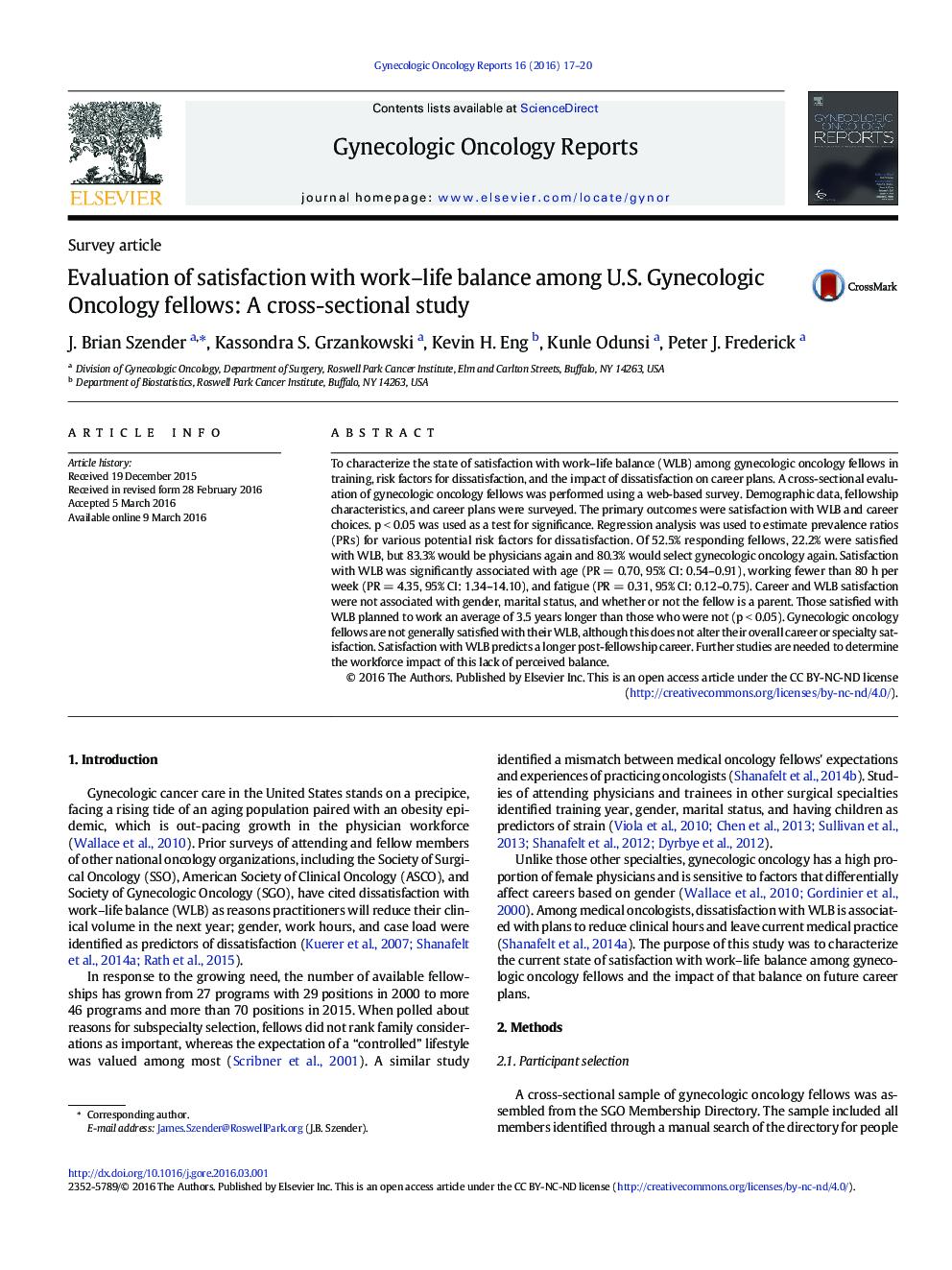| Article ID | Journal | Published Year | Pages | File Type |
|---|---|---|---|---|
| 3947733 | Gynecologic Oncology Reports | 2016 | 4 Pages |
•Most gynecologic oncology fellows are not satisfied with their work–life balance.•Working 80 h per week or more predicts dissatisfaction with work–life balance.•Satisfied fellows plan to work 3.5 years longer than those who are not satisfied.
To characterize the state of satisfaction with work–life balance (WLB) among gynecologic oncology fellows in training, risk factors for dissatisfaction, and the impact of dissatisfaction on career plans. A cross-sectional evaluation of gynecologic oncology fellows was performed using a web-based survey. Demographic data, fellowship characteristics, and career plans were surveyed. The primary outcomes were satisfaction with WLB and career choices. p < 0.05 was used as a test for significance. Regression analysis was used to estimate prevalence ratios (PRs) for various potential risk factors for dissatisfaction. Of 52.5% responding fellows, 22.2% were satisfied with WLB, but 83.3% would be physicians again and 80.3% would select gynecologic oncology again. Satisfaction with WLB was significantly associated with age (PR = 0.70, 95% CI: 0.54–0.91), working fewer than 80 h per week (PR = 4.35, 95% CI: 1.34–14.10), and fatigue (PR = 0.31, 95% CI: 0.12–0.75). Career and WLB satisfaction were not associated with gender, marital status, and whether or not the fellow is a parent. Those satisfied with WLB planned to work an average of 3.5 years longer than those who were not (p < 0.05). Gynecologic oncology fellows are not generally satisfied with their WLB, although this does not alter their overall career or specialty satisfaction. Satisfaction with WLB predicts a longer post-fellowship career. Further studies are needed to determine the workforce impact of this lack of perceived balance.
